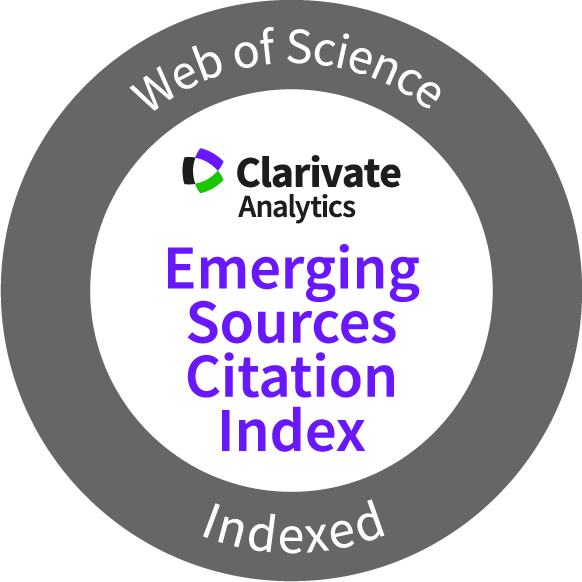ELUCIDATING THE DYNAMIC OF DROUGHT TOLERANCE RICE, MR219-4 TO THE Xanthomonas oryzae INFECTION
Keywords:
Pathogenic infection, MR219-4, biotic, morphological, total oil, varianceAbstract
Rice (Oryza sativa) is a primary source of food for more than half of the world’s population. Despite its importance, rice production struggles with various pathogenic attacks particularly by Xanthomonas oryzae that causes bacterial blight. Overcoming this issues is of utmost priority especially when the use of drought-tolerant varieties to secure production in erratic climate is on the rise. Thus it is important to comprehend the pathogenicity of this proteobacteria towards rice. Consequently this study was conducted to determine the pathology of X. oryzae infection on drought tolerance rice variety namely MR219-4 grown under normal conditions. 16-days old seedlings were infected with the pathogen and subsequently the morphological traits, total oil content and the variance between total oil, biomass (except for day 20) and dry weight of the infected and non infected plants were assessed in three developmental phases; seedlings, vegetative and reproductive. The results showed that plant height, root length, biomass and total oil content did not significantly differ between the infected and the control plants. However, variance analysis shows that bacterial infection caused a deterministic toward stochastic response in total oil/biomass variance over growth stages. Thus indicating that the population dynamic of MR219-4 defence
mechanism to the infection is deterministic during the seedling stages and becoming stochastic during the vegetative phase paddy.
Downloads
Metrics
References
Abd Wahid, A.N., Abdul Rahim, S., Abdul Rahim, K. & Harun, A.R. 2016. Nitrogen use efficiency in MR219-4 and MR219-9 rice mutant lines under different water potentials and nitrogen levels using 15N isotopic tracer technique. Malaysian Journal of Analytical Science, 20: 500-509. https://doi.org/10.17576/mjas-2016-2003-06
Boller, T. & Felix, G. 2009. A renaissance of elicitors: Perception of microbe-associated molecular patterns and danger signals by pattern-recognition receptors. Annual Review of Plant Biology, 60: 379-406. https://doi.org/10.1146/annurev.arplant.57.032905.105346
Browse, J. 2009. Jasmonate passes muster: A receptor and targets for the defense hormone. Annual Review of Plant Biology, 60: 183-205.
https://doi.org/10.1146/annurev.arplant.043008.092007
Cha, T.S., Chen, J.W., Goh, E.G., Aziz, A. & Loh, S.H. 2011. Differential regulation of fatty acid biosynthesis in two Chlorella species in response to nitrate treatments and the potential of binary blending microalgae oils for biodiesel application. Bioresource Technology, 102: 10633-10640. https://doi.org/10.1016/j.biortech.2011.09.042
Chu, H. & Tso, T.C. 1968. Fatty acid composition in Tobacco I. green tobacco plants. Plant Physiology, 43: 428-433. https://doi.org/10.1104/pp.43.3.428
Cottyn, B., Regalado, E., Lanoot, B., De Cleene, M., W Mew, T. & Swings, J. 2001. Bacterial populations associated with rice seed in the tropical environment. Phytopathology, 91: 282-92. https://doi.org/10.1094/PHYTO.2001.91.3.282
Denancé, N., Sánchez-Vallet, A., Goffner, D. & Molina, A. 2013. Disease resistance or growth: the role of plant hormones in balancing immune responses and fitness costs. Frontiers in Plant Science, 4. https://doi.org/10.3389/fpls.2013.00155
Gális, I., Smith, J.L. & Jameson, P.E. 2004. Salicylic acid-, but not cytokinin-induced, resistance to WClMV is associated with increased expression of SA-dependent resistance genes in Phaseolus vulgaris. Journal of Plant Physiology, 161: 459-466. https://doi.org/10.1078/0176-1617-01255
Le Thanh, T., Thumanu, K., Wongkaew, S., Boonkerd, N., Teaumroong, N., Phansak, P. & Buensanteai, N. 2017. Salicylic acid-induced accumulation of biochemical components associated with resistance against Xanthomonas oryzae pv. oryzae in rice. Journal of Plant Interactions, 12: 108-120. https://doi.org/10.1080/17429145.2017.1291859
Mohan, N. & Mahadevan, A. 2001. Effect of phenol on lipid and fatty acid profile of Xanthomonas oryzae pv. oryzae. Indian Journal of Experimental Biology, 39: 1062-4.
NiñO-Liu, D.O., Ronald, P.C. & Bogdanove, A.J. 2006. Xanthomonas oryzae pathovars: model pathogens of a model crop. Molecular Plant Pathology, 7: 303-324. https://doi.org/10.1111/j.1364-3703.2006.00344.x
Podar, D. 2013. Plant growth and cultivation, in: Plant mineral nutrients, Methods in molecular biology. Humana Press, Totowa, NJ, pp. 23-45.
https://doi.org/10.1007/978-1-62703-152-3_2
Sakthivel, N., Mortensen, C. & Mathur, S. 2001. Detection of Xanthomonas oryzae pv. oryzae in artificially inoculated and naturally infected rice seeds and plants by molecular techniques. Applied Microbiology and Biotechnology, 56: 435-441. https://doi.org/10.1007/s002530100641
Savary, S., Ficke, A., Aubertot, J.-N. & Hollier, C. 2012. Crop losses due to diseases and their implications for global food production losses and food security. Food Security, 4: 519-537. https://doi.org/10.1007/s12571-012-0200-5
Shadle, G.L., Wesley, S.V., Korth, K.L., Chen, F., Lamb, C. & Dixon, R.A. 2003. Phenylpropanoid compounds and disease resistance in transgenic tobacco with altered expression of lphenylalanine ammonia-lyase. Phytochemistry, 64: 153-161. https://doi.org/10.1016/S0031-9422(03)001511
Zhu, J.-K. 2016. Abiotic stress signaling and responses in plants. Cell, 167: 313-324. https://doi.org/10.1016/j.cell.2016.08.029
Zipfel, C. 2009. Early molecular events in PAMPtriggered immunity. Current Opinion in Plant Biology, 12: 414-420. https://doi.org/10.1016/j.pbi.2009.06.003
Published
How to Cite
Issue
Section
Any reproduction of figures, tables and illustrations must obtain written permission from the Chief Editor (wicki@ukm.edu.my). No part of the journal may be reproduced without the editor’s permission

















